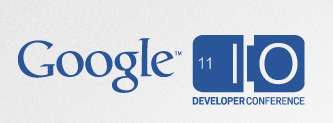Google I/O: Spotty product launch history mutes expectations

Google's I/O developer conference kicks off Tuesday and expectations appear to be relatively low. Why? Product announcements out of I/O appear to be hit or miss. In fact, success or failure is basically a coin flip.
My plan was to look at previous I/O announcements and examine how things turned out. Danny Sullivan beat me to it and has a handy recap. Here's the rough breakdown:
- In 2008, Google used I/O to talk about Gears, Android, Google Friend Connect and Google App Engine. Gears and Friend Connect are toast. Android was a big win and App Engine is a work in progress. One enterprise software insider recently noted that Google breaks out App Engine once a year at I/O, talks it up and then forgets about it. Whether that perception of App Engine is accurate or not remains to be seen, but that take is telling.
- In 2009, Google introduced Google Wave. Developers thought it was great. No one else did. Wave was killed.
- Last year, Google used I/O to talk WebM, the video encoding format. WebM won YouTube and the jury is out beyond that. Google also talked the Chrome Web Store---an occasionally handy tool, but not a world beater. Google also showed off some voice recognition---a clear win on the mobile front---and Google TV. Google TV also got folks excited at first, but then the interface bombed with consumers. The search giant also talked about a music service, which has yet to appear officially.

That progression is common with Google's flagship developer conference. Euphoria followed by buzz, then backlash and then a thud.
Looking at Google's session topics clearly revolve around Android---the search giant's best horse beyond search. One key session will be Honeycomb Highlights. If I were to be a total cynic I'd have to ask "what highlights?" Google didn't give Honeycomb a lot of app support out of the gate when it cAnother Android topic revolves around NFC (near field communications). Google, local, commerce and NFC could be compelling.
Chrome, Commerce and App Engine are also session tracks worth noting. It's also worth noting that those three categories---with the exception of Chrome---are sort of middling in the momentum department.
Google Apps will also be worth noting. The offering is at an interesting juncture---momentum continues and competition surges just as news attention wanes. For Google that's good news. The same buzz-to-mundane cycle happened with Linux too. Now you can't find a data center without some percentage of Linux implemented.
In addition, the Geo track is worth watching---if only because of all the hubbub around location tracking.
Add it up and Google has an interesting set-up for this I/O. Expectations are low and that means Google has a nice environment to surprise a few of us.